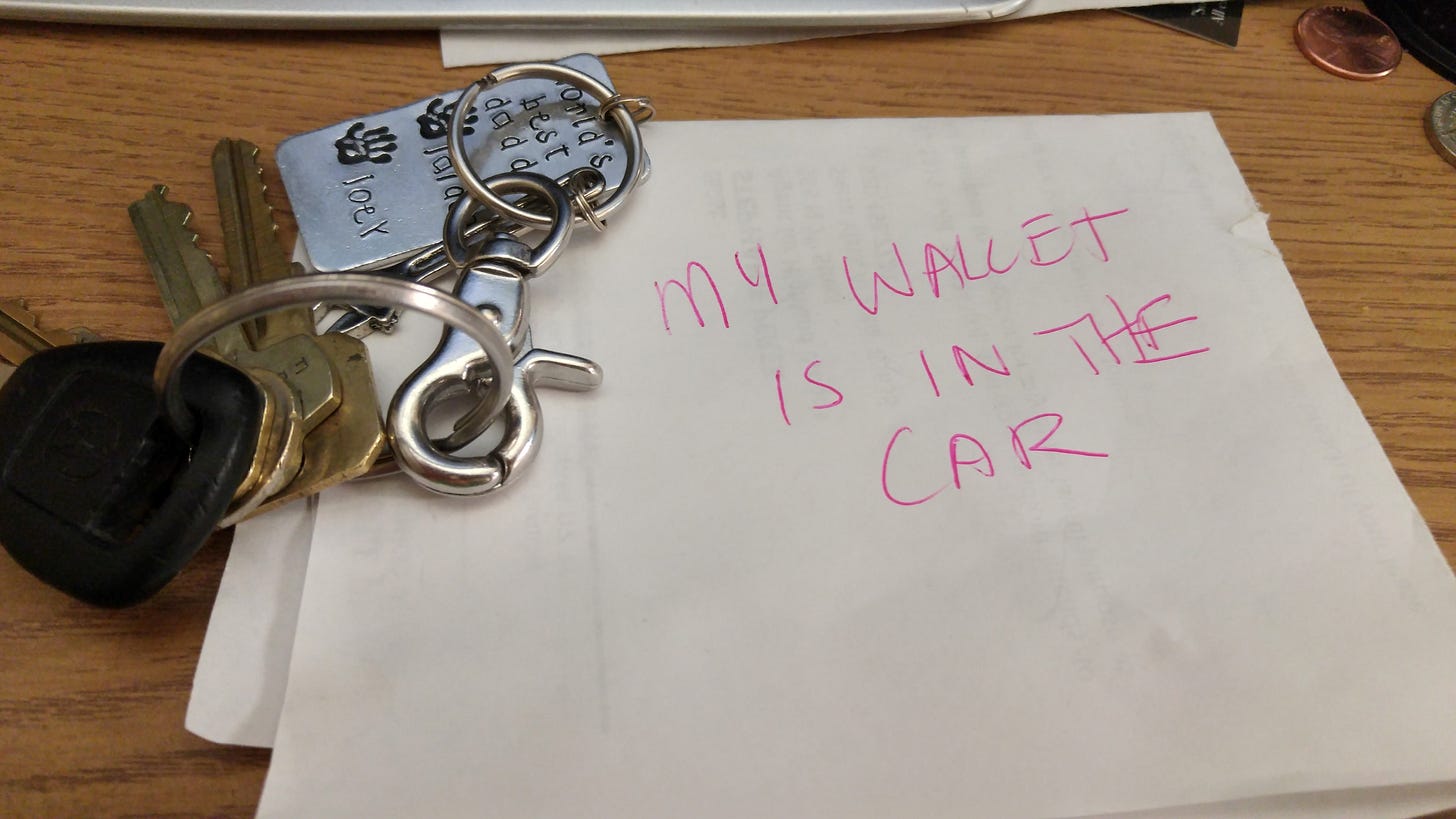Ever picked up a self-help book and somewhere in the first couple of pages the writer tells you that throughout the book there will be exercises where you’ll need to write stuff down?
Most of us read that and think to ourselves “I’m just going to read it and remember it. I don’t need to write it down”.
Guess what?
If you want something to actually work, you probably do need to write it down.
I’m going to write more in-depth about some of these topics in the future, but for the purpose of this post, here are a few areas where I think writing it down (vs. just trying to remember) can definitely make a difference.
Food / Eating better
Budgeting
Goals
Gratitude
Let’s briefly explore these.
Food: “this dumb diet just doesn’t work”
How often have almost all of us uttered something similar to that phrase?
Here’s the secret to every diet, ever: regardless of what types of food you eat, you will lose weight when you burn more calories than you take in. All diets restrict your daily caloric intake in one way or another.
Unless …
You’re either purposely “cheating” on your eating plan. Or, more likely, you don’t know on any given day exactly how many calories you’re consuming.
The solution?
You guessed it. Keep a diet diary. Write down everything you eat each day.
You’ll not only have an easier time knowing how well you’re sticking to whatever eating plan you’ve chosen, but it cuts down on cheating too. Believe me, it’s much harder to justify “just one donut” when you know you have to write it down and it will still be there, recorded for posterity a week, a month, or even years later.
I have some ideas about eating plans, but like I said, we’ll talk more about that another time.
Money: “where did it all go?”
Anybody else ever scared to open your banking app, or your credit card bill?
Every once in a while we get a pleasant surprise and there’s more money there than we expected. But more often than not, there’s a good reason we avoided/dreaded this task in the first place.
It really shouldn’t, and doesn’t have to be this way though.
These days there are so many apps and software programs to track our spending. Heck, I even made a spreadsheet in Google Sheets for mine.
But guess when usually I end up most stressed out about money?
Typically about 4-6 months after I’ve (for some ridiculous reason) decided that I don’t need to use that spreadsheet; I can just keep track in my head as I go.
This is among the worst lies I consistently tell myself.
Even if you’re in a situation where there is likely to be “too much month at the end of your paycheck”, you’re still almost certainly better off knowing where your money is going as you spend it.
Write it down.
Goals: “fuzzy goals lead to fuzzy results”
There are literally whole libraries full of books about goals and goal setting, so I’m not going to spend a lot of time on this subject. I will tell you a quick story though.
About 20-25 years ago I dabbled in network marketing (aka mlm). I never got rich, but I never lost money either, and I am grateful for much of the personal growth concepts I was first exposed to during this period of my life.
In the late 90 or early 2000s, I know I had a Dream Board.
Two things that were on that board were an income goal, and a wish for more “time freedom”.
I didn’t achieve either via network marketing.
But years later, thinking back …
Right now I earn more money than any number I’d written on that board at the time (caveat: I wasn’t expecting a $million a year or anything back then).
I also have the kind of job that gives me more flexibility and time freedom than most of the people I knew back then who did have more “success” probably have right now.
So what’s my takeaway from this?
Writing down your goals does work.
Just don’t get too caught up in the “when” or the “how” part.
Gratitude: “appreciate what you have to get more of what you want”
One of my favorite things I learned from my time as a Mastery Resiliency trainer, and that UPenn positive psychology course, was an exercise called “Hunt the Good Stuff”.
Basically, at the end of every day, right before you go to sleep, open your journal (or there are apps you can put on your phone), and write down 3 good things that happened that day.
To practice "Hunt the Good Stuff", people can:
Find three positive things that happened during their day
Reflect on each positive thing
Consider why the good thing happened
Think about what the good thing means to them
Consider what they can do to create more of the good thing
Think about how they or others contributed to the good thing
There is science behind why we do this at the end of the day. The tl;dr version is along the lines of: what we think about right before we go to sleep tends to influence what we think about when we first wake up … and what we think about when we first wake up can set the tone for our entire day.
But like the other things mentioned earlier in this post, you have to actually do it every day, and you have to (you guessed it) …
Write it down.
Finally …
If your memory isn’t always the greatest, writing little notes to yourself can keep you from freaking out when you wake up the next morning and can’t find your wallet.
Til next time,
Todd
Thanks for reading New Greater You! Subscribe for free to receive new posts and support my work.



